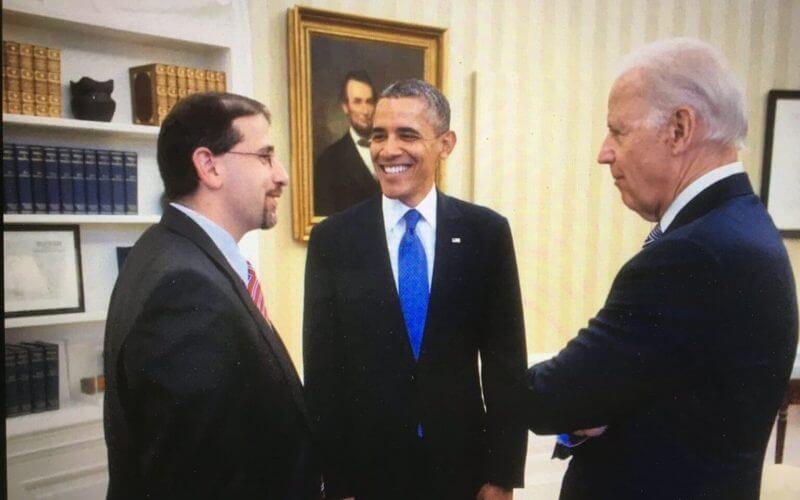Former United States ambassador to Israel under the Obama administration, Daniel B. Shapiro, announced on social media his departure from the Biden administration’s Iran team after several months as a temporary senior advisor and government employee.
The departure of one of the Biden Administration's most pro-Israeli members of the Iran team raises concerns about the current approach to the nuclear talks with Tehran.
Back in January,, several members of President Biden’s Iran team, including the second highest-ranking official on the Iran team, Richard Nephew, left the team because of concerns over the way talks were headed between the U.S. and Iran in Vienna, Austria.
According to reports, Nephew and the others departed members advocated for a much more ardent posture towards the negotiations with Iran, causing disagreement amongst the team. National security and foreign policy analysts who have paid close attention to the ongoing talks in Vienna have also echoed similar sentiments outlined by the three departing members, arguing that the deal does not address crucial issues related to Iran.
As negotiations between U.S. officials and Iran began in 2022, Republican and Democrat members of Congress and Israeli government officials have become increasingly worried about the administration's handling of the negotiations, resulting in the members of the Biden Iran team explaining their stance.
In his departure announcement, Shapiro stated that he supported the Biden administration's policy on making sure Iran never posed a nuclear weapon and did not echo any sentiments of frustration against the U.S. Iran team. Shapiro also indicated in his departure announcement that he would outline his thoughts on the new nuclear agreement between Tehran and Washington if it came about.
Members of the Israeli government, including Prime Minister Naftali Bennett, view the departure of the two officials from the Biden administration’s Iran team and now Shapiro once again as cause for concern.
With proposals for removing the Iranian Revolutionary Guards Corps (IRGC) from the U.S. Foreign Terrorist List and the unfreezing of Iranian assets overseas, Israeli officials raise concerns that the U.S. is giving up too much in the negotiations with the mullahs.
Gabriel Noronha, a former Special Advisor for Iran in the U.S. State Department under the Trump Administration, argues that while at first Prime Minister Bennett’s government was wary of “criticizing the U.S. for its negotiations with Iran, in the past month, there has been extremely vocal public concern from the Bennett government that Shapiro has been unable to assuage as a result of massive U.S. concessions in negotiations.”
Noronha believes that “it would be a difficult job for Mr. Shapiro to convince the Israelis that this deal is in their interest when the Biden administration is preparing to allow Iran to have access to around $90 billion in sanctions relief with no restrictions on its use to threaten and attack Israel through terror proxies like Hezbollah and Hamas, and lifting sanctions against the IRGC which is dedicated to the destruction of the entire state of Israel.”
While Shapiro no longer has a role in the State Department or the Biden administration's Iran team, he still maintains close ties with Israeli government officials and advocates for cooperation between America and Israel on the Israeli-Palestinian conflict, Iran's nuclear program, and Iran's aggressive actions in the Middle East, and other key issues.
Shapiro announced that he will now join the Atlantic Council, a U.S.-based think tank in international affairs, to work on matters regarding Israel, normalization, peace, and stability in the Middle East.









